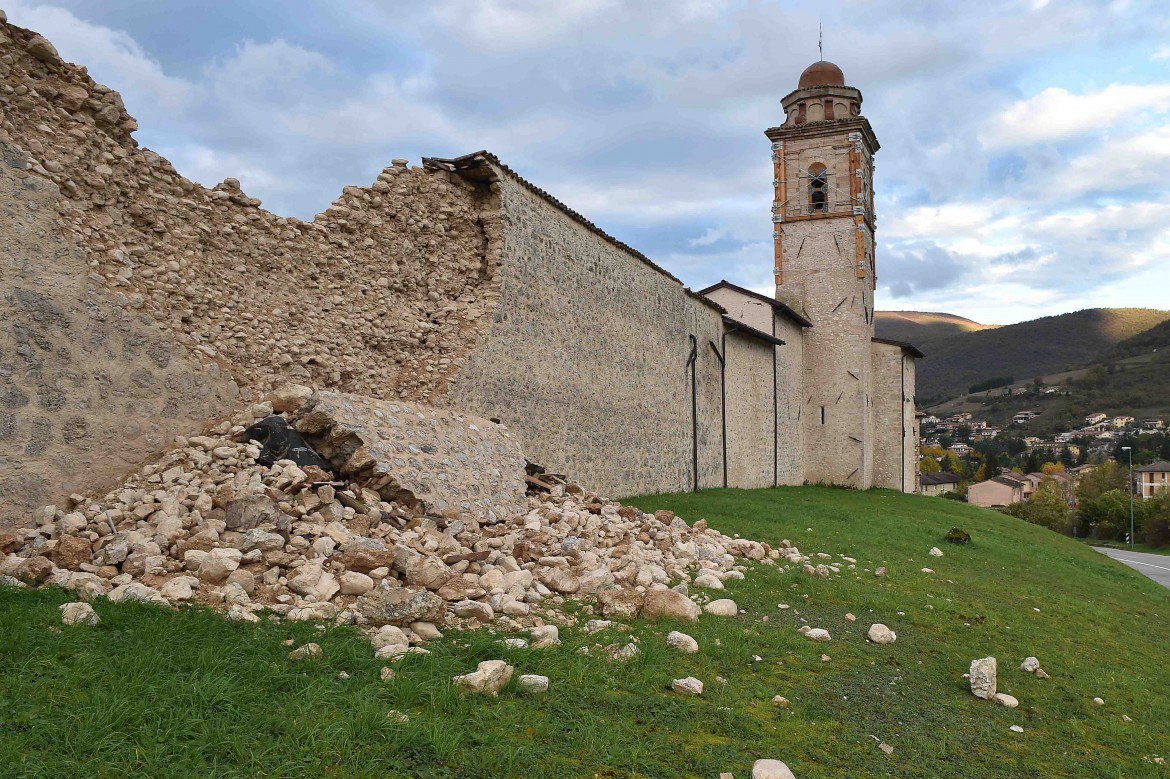Commentary
Italy’s historic preservation is a shambles
After earthquakes leveled the central regions, bulldozers rumbled over heaps of frescoes.

Altarpieces (often extraordinarily important), sculptures, jewelry, furniture. While Minister Dario Franceschini was raving about the “blue helmets of culture,” there was absolutely nothing of the kind.
And after the terrible earthquake of Oct. 30, still nothing, until the mayors clamored loudly for their right to work independently. That’s what the commissioner Vasco Errani granted: More than a century ago, somehow it was decided that there is no need for technicians to handle emergencies of the cultural heritage. It is like telling the mayor to operate on a gravely injured person, because the ambulance cannot come for a few days.
And so, today we admire the bulldozers rumbling on heaps of frescoes, and see that the policemen (heroic, as always) are the ones taking the mutilated works away from the ruined churches. Just like that: putting the pieces down on wet meadows, without taking any photograph, without any special tools, without following any protocol. It feels as if we were not in Italy, home to the most advanced preservation of heritage, but in the last of the most barbarous countries.
But how come we got to this point of no return?
It was a deliberate choice, pursued with tenacity. As Maria Elena Boschi said a few days ago — being in perfect agreement with Matteo Salvini, on the chairs of the TV talk show Porta a Porta — “We have made a public administration reform to reduce complications in the territory. Other challenges are welcome, I agree with the reduction of supervisory levels, like Minister Franceschini is doing. Let’s get rid of them, all right, let’s work the next day: We are extremely available to discuss everything.”
For once Boschi told the truth: The Franceschini reform (a reform conceived in hatred of the superintendents, on behalf of a prime minister who wrote that “superintendent is the ugliest word in the vocabulary of the bureaucracy”) has given the coup de grace to guardianship. The so-called “holistic” superintendencies, the disarticulation of the archives of the old superintendencies, the deliberate shuffling of the staffers that now are in charge of protecting a territory they don’t know, the hijacking of all funds for the “big tourist attractors,” the extreme imbalance toward the valorization (with the attempt to introduce into the Constitution the concept of “promotion,” entrusting it to the Regions), the submission to the prefects, the missed turnover (the 500 who will start working in 2017 will not be enough even to replace the last wave of retirements, and in Umbria, there is now only one archaeologist!). All these, combined with the atavistic lack of funds and personnel, have led to the disaster that is there for all to see.
Franceschini has dismantled the state’s heritage protection, thus implementing the program of a government that is simultaneously dismantling public schools, workers’ rights and even the Constitution itself. But in this case, there was an unexpected incident: the earthquake that revealed too early that the preservation system simply does not exist anymore. Once the emergency is over, on the other hand, even this tragic hairpin will be leveraged: And it will be said that if the mayors were able to handle the emergency, then with all the more reason, they will be able to govern the ordinary guardianship. And so finally, all superintendencies will be closed.
Sandro Bondi’s head rolled after an infinitely less serious damage than the one caused by Franceschini’s wicked choices. But the latter has a wide media indulgence, due to the fact that, even controlling the parliamentary groups of the Democratic Party, he is considered a strategic reserve for the post-Dec. 4 period, whatever happens. However, we should remember, as Voltaire said, that “the details and the devices of the policy fall into oblivion, but good laws, institutions and monuments produced by the sciences and the arts will always be there.”
Well, if we want our cultural heritage to still have some hope to exist, it is vital and urgent to change the minister and change the policy. We also vote on this on Dec. 4.
Originally published at http://ilmanifesto.info/franceschini-e-larticolo-9-rimasto-sotto-le-macerie/ on 2016-11-25
